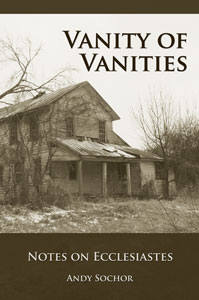
The fact that God’s work in creation could be finished highlights His providence. After discussing Jesus’ role in creation (Colossians 1:16), Paul wrote, “He is before all things, and in Him all things hold together” (Colossians 1:17). The Greek word translated “hold together” or “consist” (KJV) is the same word that is translated “formed” in 2 Peter 3:5 – “For when they maintain this, it escapes their notice that by the word of God the heavens existed long ago and the earth was formed out of water and by water.” God “formed” this world and because of the perfect way in which He formed it, everything is held together as it needs to be.
In this perfect creation, God’s providence is ongoing. The psalmist made this point: “Your faithfulness continues throughout all generations; You established the earth, and it stands. They stand this day according to Your ordinances, for all things are Your servants” (Psalm 119:90-91). Because God’s word is “forever… settled in heaven” (Psalm 119:89) and this word was used to bring about the physical world around us (Psalm 33:6-9), His faithfulness continues to be on display for all to see. This was what Paul meant when he told the residents of Lystra that God “did not leave Himself without witness, in that He did good and gave you rains from heaven and fruitful seasons, satisfying your hearts with food and gladness” (Acts 14:17). God’s ongoing providence is a witness to His existence and care for mankind.
After the flood, God made Noah this promise: “While the earth remains, seedtime and harvest, and cold and heat, and summer and winter, and day and night shall not cease” (Genesis 8:22). To this day, God’s promise is still being carried out. Even the mockers in Peter’s day acknowledged this, though they failed to appreciate the significance of it: “Where is the promise of His coming? For ever since the fathers fell asleep, all continues just as it was from the beginning of creation” (2 Peter 3:4). These mockers were citing the fact that “all continues just as it was” as the reason why they doubted the promise of Christ’s return. In other words, they saw the ongoing providence of God but completely missed the point. God was keeping His promise that the earth would continue in its regular seasons and cycles; therefore, they (and we) could be assured that He will keep His promise that Christ would return. “All continues just as it was” (2 Peter 3:4) because that was how God designed this world to function. It will continue to work this way as long as “the earth remains” (Genesis 8:22).
The above post is an excerpt from the book, Great Days in History: The Unfolding of the Scheme of Redemption by Andy Sochor. Follow the link to learn more about the book and purchase your copy today!


